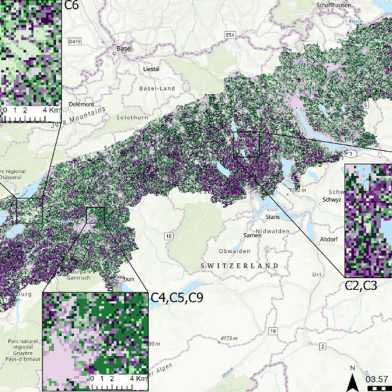News
All stories that have been tagged with Planning of Landscape and Urban Systems - PLUS
In Memoriam Prof. Dr. Jakob Maurer
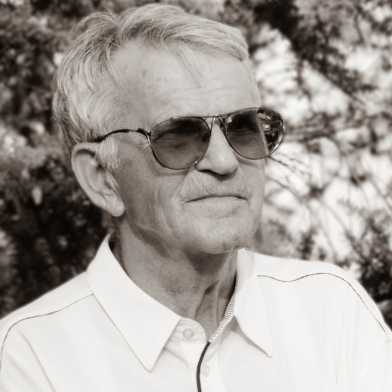
Jakob Maurer, emeritus professor of spatial planning at ETH Zurich, passed away on 30 May aged 96.
New article in Nature Cities – Emotions overrule cognitive evaluations in urban neighborhood preferences
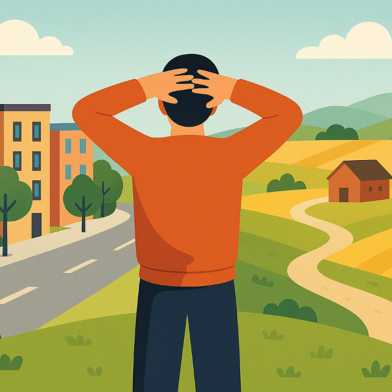
Peri-urban growth is reshaping rural areas and creating challenges. Using immersive experiments, this study finds that emotional reactions dominate over cognitive judgments, with people favoring urban and rural settings over peri-urban ones in neighborhood preferences
New article in Renewable Energy: GIS-based analysis for identifying priority regions and developing renewable energy in post-war Ukraine
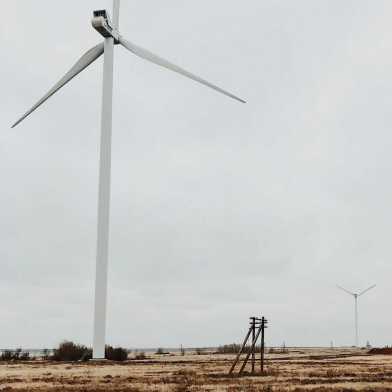
Research assess the technical potential of solar and wind energy combined with environmental, social, and technical factors for determines priority regions for the development of renewable energy. For the first time in Ukraine, the research defines a detailed renewable energy potential using spatial analysis, with 25 indicators to assess regions and pixel suitability and considered local features such as restrictions on the use of agricultural land.
Policy Brief: Where in the agricultural landscape is bird conservation worthwhile?

A publication in “Agrarforschung Schweiz” summarizes the results of a recently published research article in a practice-oriented manner. As part of the study, a focus map by Agroscope, ETH Zurich and the University of Lausanne shows where in the Swiss agricultural landscape biodiversity measures could have a positive effect on birds and where not. Based on these findings, land use can be better planned.
What happens when the soil that sustains agriculture also becomes the foundation for building cities?
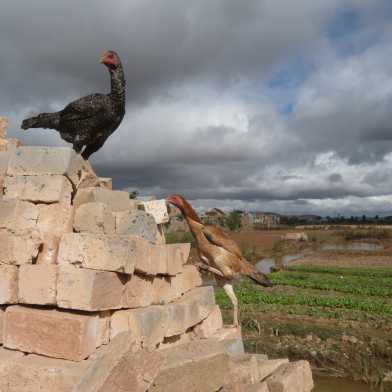
When I arrived in Madagascar three years ago, I was struck by an unexpected sight—piles of red bricks scattered across rice fields near Antananarivo. Curiosity led us to farmers and brick-makers, where we observed, interviewed, and pieced together a complex story—one of adaptation, resilience, and trade-offs.
New article in Ecosystem Services: Uncertainties in ecosystem services assessments and their implications for decision support
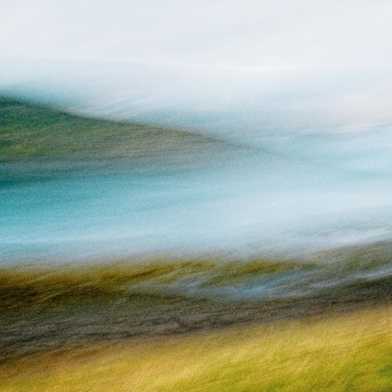
How assessing uncertainties can improve uptake of ecosystem services assessments in decision making.
New article in Cities: Predicting Settlement Development Pathways
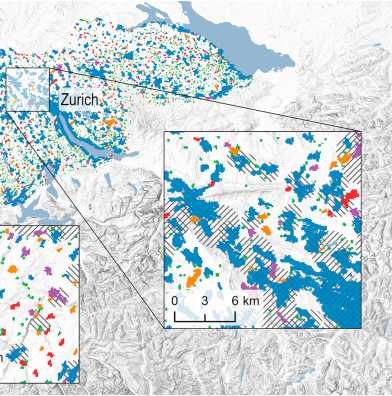
Analyzing 120 years of settlement development reveals how archetypical pathways can be predicted and shifted.
New article in Renewable Energy – Advancing shared energy transition through strategic regional future developments
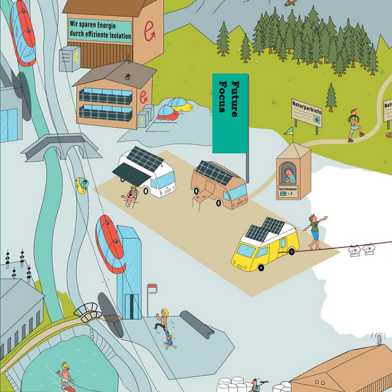
To advance energy transition, it is essential to understand residents’ views on regional energy transition and how it relates to local spatial development. This insight is key to identifying shared solutions.
New publication in Frontiers in Virtual Reality (Virtual Reality in Medicine) - Immersive virtual reality for gait rehabilitation
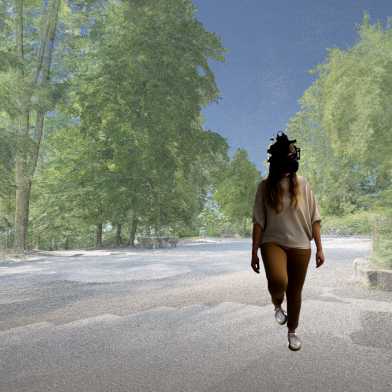
How can immersive virtual reality environments transform healthcare? Our latest research explores this question by developing a head-mounted display VR (HMD-VR) exergame to use in gait therapy. This study demonstrates the potential of high-fidelity virtual environments to provide patients with engaging and realistic training experiences tailored to their therapeutic needs.
New article in Conservation Science & Practice – Identifying focus zones for the conservation and promotion of priority birds in Swiss farmland
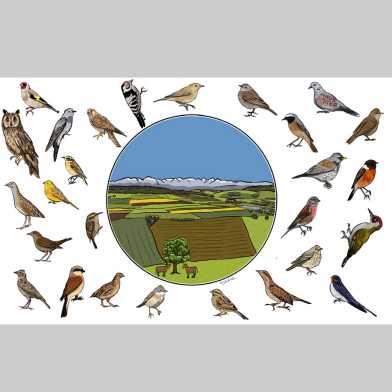
Agricultural landscapes are habitats for many animal and plant species, but often a balance must be found between food production and species protection.
Golden Owl: "To teach is to learn twice"
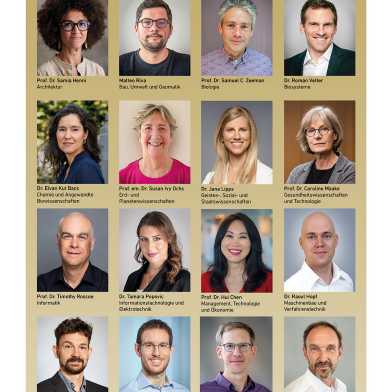
This year, D-BAUG students awarded Matteo Riva the "Golden Owl" in recognition of his dedication to teaching. Riva is a doctoral candidate at the Institute for Spatial Planning and Landscape Development, where he evaluates landscape changes and the condition of ecosystems. For him, teaching is not just about the transfer of knowledge, but an inspiring exchange in which students and teachers can grow together.
New article in Urban Forestry & Urban Greening – Exploring the interplay of urban form and greenery in residents’ affective and cognitive responses
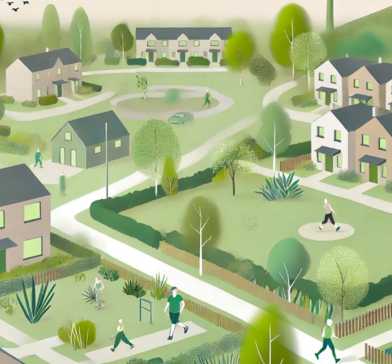
As urbanization continues to rise, understanding the impact of urban greenery on human wellbeing becomes increasingly important. Our new paper investigates how different types of urban greenery and neighborhood contexts influence residents’ physiological and psychological responses.
Consultation on the revision of the Swiss spatial planning regulations (RPV)
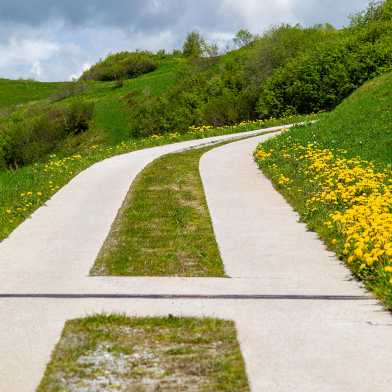
The Federal Department of the Environment, Transport, Energy and Communications (UVEK) has conducted a consultation on the amendment to the Spatial Planning Regulations (RPV, Raumplanungsverordnung). The proposed changes take account of the need to limit buildings and soil sealing in landscapes and fertile agricultural land. IRL has responded to the consultation and commented on the draft amendments of the RPV.
New article in Geography and Sustainability - Analyzing the extent and use of impervious land in rural landscapes
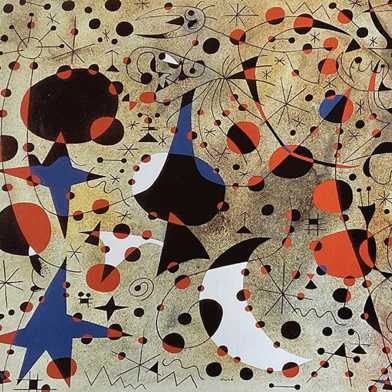
The rapid increase in impervious surfaces presents significant challenges to sustainable land management. Our paper explores how sealed surfaces, often associated with urbanization, are also prevalent in rural regions and what these surfaces are used for.
How Ukraine can rebuild its energy system
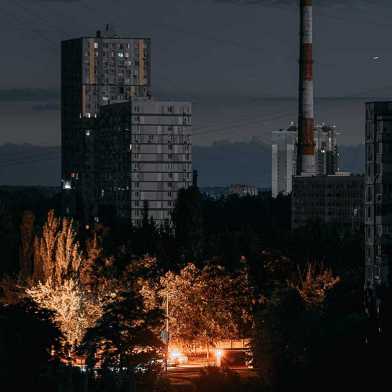
Iryna Doronina, who was at PLUS with a Scholar at Risk scholarship, has explored how the destroyed Ukrainian energy infrastructure can be rebuilt using renewable energy. According to her findings, solar and wind power enable a rapid, decentralized supply and help prevent corruption.
New article in Ecological Informatics – Harnessing Artificial Intelligence for efficient systematic reviews: A case study in ecosystem condition indicators
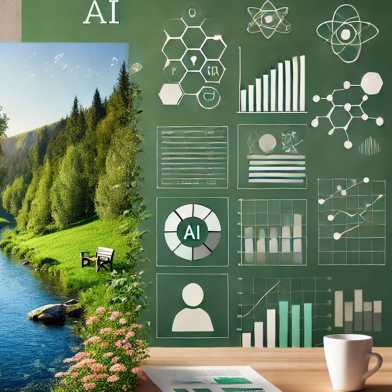
As the popularity and capacity of generative AI continues to grow, our new paper looks at how these models can be used in the systematic review process to gain insight into assessing ecosystem condition.
A strategy game on urban flood and blue-green infrastructure in Antananarivo (Madagascar)
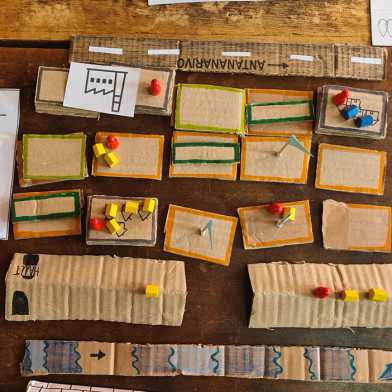
In June, my colleague Nantenaina and I organized a series of workshops, as part of Future Cities Lab Global Tana project. We tested our new strategy game, which aims to improve flood management in the peri-urban floodplains of Antananarivo and to explore the potential of blue-green infrastructure.
New article in Ecology and Evolution- Identification of metacommunities in bioregions with historical habitat networks
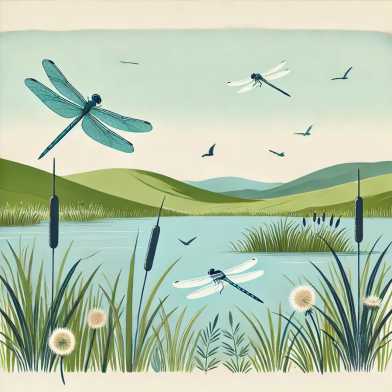
At the interface of landscape history and metacommunity theory, a new paper identifies the need to view the landscape through the lens of the past for better understanding of regional biodiversity patterns.
Broadening the horizon in land use change modelling: Normative scenarios for nature positive futures in Switzerland
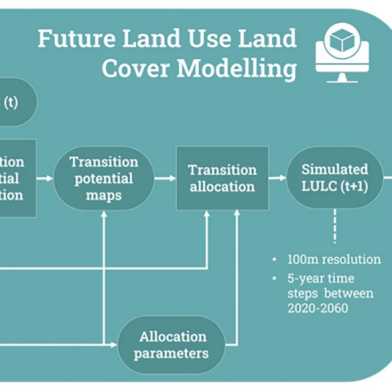
Within scenario-based research of social-ecological systems, there has been a growing recognition of the importance of normative scenarios that define positive outcomes for both nature and society.
Another great PLUS writing week in Austria
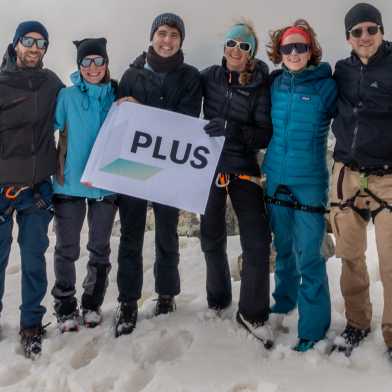
For the seventh edition of the annual PLUS writing week, we returned to Vandans, Austria, for an inspiring and productive week of writing, discussions, and team building.
Checklists to Support Practitioners in the Assessment of Ecosystem Services

Earlier this month a new article was published, in which we, together with other partners in the SELINA project, have designed best-practice checklists to support practitioners in the assessment of ecosystem services.
Building outside the building zones: Study advocates inter-cantonal coordinated monitoring
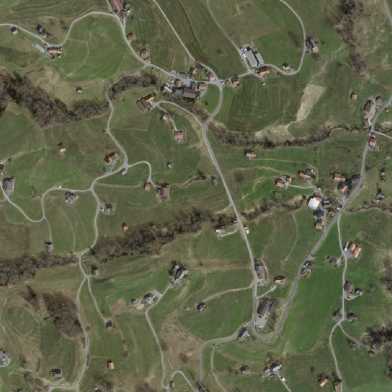
A study by ETH Zurich shows new approaches on how an intercantonal harmonized monitoring of construction outside of building zones can contribute to sustainable spatial development. It offers a wide range of evaluations of developments outside the building zone, including analyses of the stabilization of buildings and soil sealing, as required by the recently revised Federal Spatial Planning Act (RPG 2).
How to develop degrowth scenarios for biodiversity? A new paper in Sustainability Science sheds light
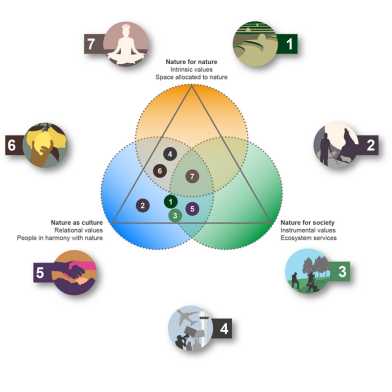
Although economic growth is a key driver of biodiversity loss, the scenarios developed so far consider that the economy must continue growing. This leads to bleak futures for biodiversity. The paper suggests key methodological steps to include economic systems where the priority is not growth but the wellbeing of people and nature.
New article in Ecological Indicators - Cartography of the interplay between Nature’s contributions to people and biodiversity in Switzerland
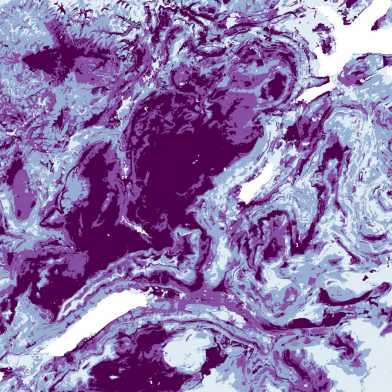
Switzerland’s diversity of landscapes offers an ideal setting to describe the various interactions between Nature’s contributions to people (NCP) and biodiversity. In this recent study, we generated spatially explicit maps of 15 NCP indicators covering all of Switzerland, as well as one biodiversity map based on the distribution of over 1400 endangered species across various taxa.
Shifting Paradigm: Incorporating Landscape Preferences and Ecosystem Services into Siting Scenarios for Renewable Energies
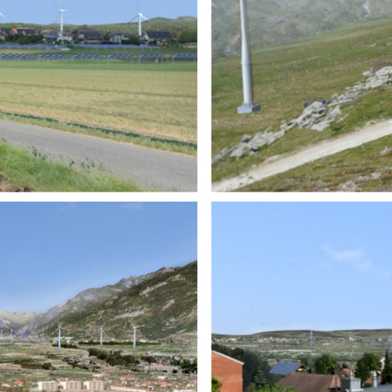
Pioneering a holistic approach in Switzerland, this study redefines renewable energy siting by integrating ecosystem services and public preferences, challenging traditional methodologies that prioritize only technical and economic factors.
Award of the title of “Professor of Practice”

Damian Jerjen (*1973), currently Director of the Swiss association for spatial planning EspaceSuisse and Lecturer at ETH Zurich and other Swiss universities, as Professor of Practice at ETH Zurich.
Mapping open spaces in Swiss mountain regions through consensus-building and machine learning

As mountain areas experience increasing tourism, transportation, energy and agricultural development, the need to manage landscape fragmentation and preserve aesthetic and cultural qualities becomes increasingly relevant.
New publication in the Journal of Environmental Policy & Planning
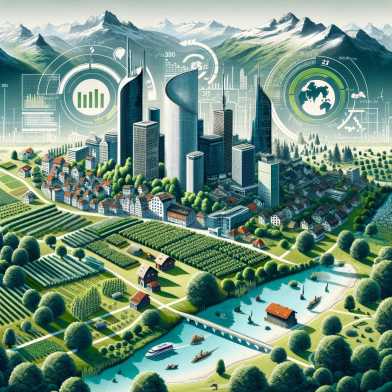
Manuel Sudau and Adrienne Grêt-Regamey wrote a new article on analyzing argumentation patterns in political discourse for better policy design.
Playing games to unlock urban neighbourhood transformations?
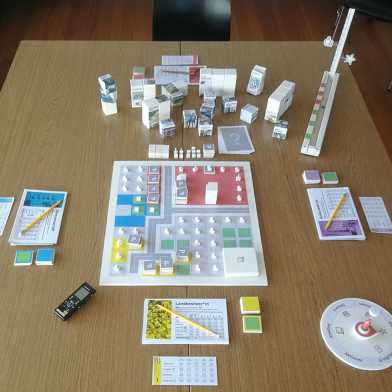
The systemic complexity of growing urban populations and contemporary urban systems lock-in unsustainable urban development pathways, deteriorating the living quality of urban dwellers and surrounding environments.
In Memory of Willy A. Schmid
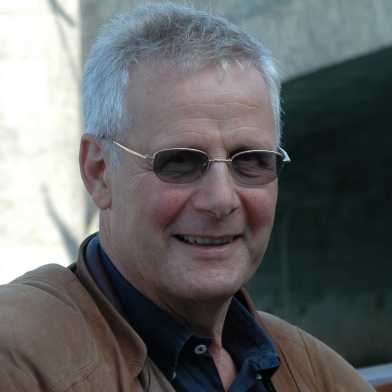
Willy A. Schmid was Professor of Landscape and Environmental Planning at the Institute for Spatial and Landscape Development (IRL), now the Chair of Planning of Landscape and Urban Systems (PLUS) at ETH Zurich, from 1978 to 2008. Here he left his mark and played a pivotal role in shaping generations of spatial and landscape planners in Switzerland and internationally.
New PhD student in the EU-project MOSAIC

Jan Hartman has joined the group to research land use decisions in the Swiss alps under climate change conditions.
A new perspective paper in Landscape and Urban Planning

A new perspective paper in Landscape and Urban Planning from Adrienne Grêt-Regamey and Nora Fagerholm underscores that digital environments only support transformation towards sustainability if they consider the dynamic interplay between the social, ecological, and technical (SETS) systems.
Archetypes of social-ecological-technological systems for managing ecological infrastructure

Explore our latest research on a case study focused on the application of ecological infrastructure in response to contemporary environmental concerns. The analysis of the canton of Geneva, Switzerland, has yielded spatially explicit archetypes of social-ecological-technological systems (SETS) to guide sustainable management amidst urbanization and biodiversity challenges.
How previous experiences shape actors’ current perspectives in integrated natural resource management
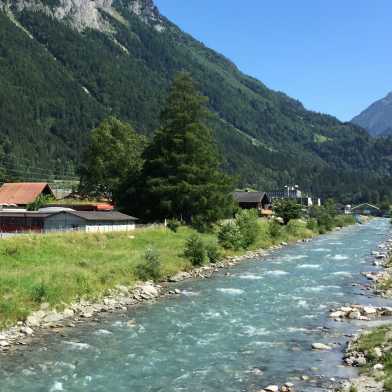
Raphael Gaus and co-authors have published a new paper in People and Nature about how previous experience in natural resource planning shape participants’perspectives? Diverse participation in natural resource planning has become standard.
"We must have the courage to question our own values"
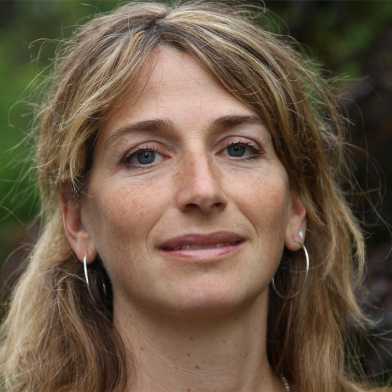
This year's Dandelion Entrepreneurship Award goes to Adrienne Grêt-Regamey, Professor of Landscape and Urban Systems Planning. The award recognises professors for their outstanding commitment to promoting entrepreneurship at ETH Zurich and beyond. In this short interview, Professor Grêt-Regamey talks about the role of entrepreneurship in her teaching and research.
Engaging with places to counteract urban homogeneity
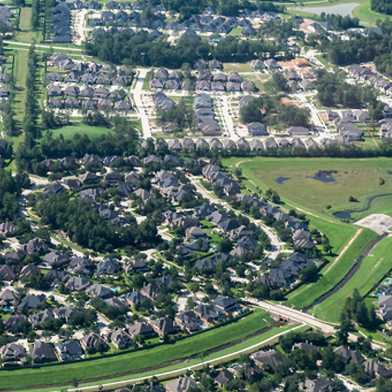
With globalisation comes homogeneous urban areas – a homogeneity that researchers say has a direct impact on our ability to engage with places.
In the LVML diving virtually into the Gotthard massif, playing a Serious Game
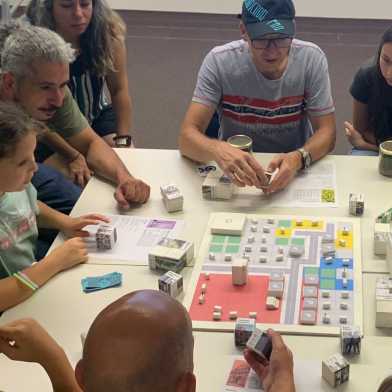
At the Scientifica 2023, current projects were shown to the interested public in the "Large-scale Virtualization and Modelling Lab - LVML". The offer attracted young and old alike and triggered stimulating discussions.
Validating Farmland Biodiversity Life Cycle Assessment at the Landscape Scale
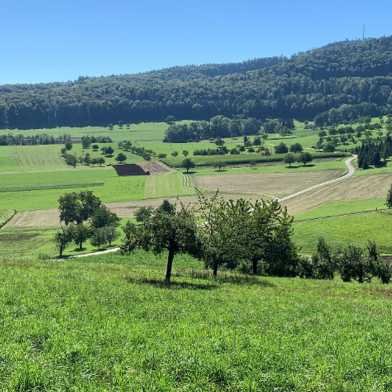
A new study of Noëlle Klein evaluates the Swiss Agricultural Life Cycle Assessment for biodiversity SALCA-BD, which is used to compare the impact of different agricultural management options on different species groups.
Aligning social networks and co-designed visions can foster systemic innovation in the Alps. A new paper from the PLUS MountainPathways project just got published in the journal Regional Environmental Change (REC).
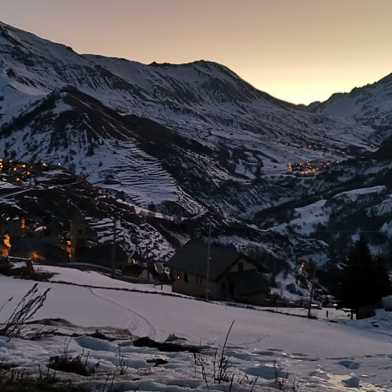
By combining social network analysis and visioning, we identify innovation capacities in two case studies in the Alps. On the one hand, the Visp mountain region shows better preparedness for general innovation given collaboration network characteristics such as a better defined small world topology, better capacity for coordination, and better quality of collaboration relationships.
How might different futures of human-nature relations unfold in Switzerland?
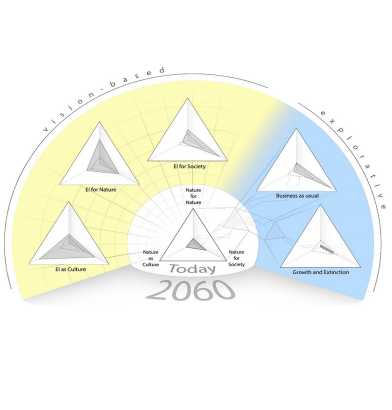
To plan and effectively manage a functioning ecological infrastructure (EI) that supports biodiversity and provides nature's contributions to people, it is necessary to understand the biophysical and socioeconomic influences on its development. We published a new article on developing scenarios for EI development pathways until 2060 that account for different value perspectives on nature.
Place-making: people, procedures, places for urban transformations under increasing homogenisation of neighbourhoods and alienation of people
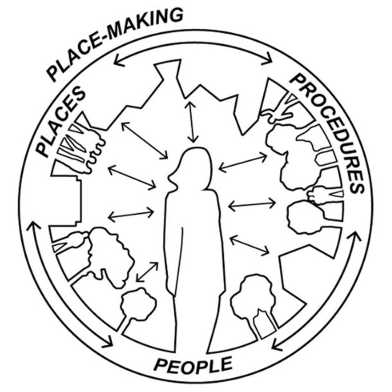
Our newly published research article delves into the concept of place-making, examining how meaningful places emerge from interactions between people and their environments. Using latent variable modelling, we provide a pioneering approach to describe and measure place-making based on a large and representative sample (N=7’035).
PLUS writing week in Austria
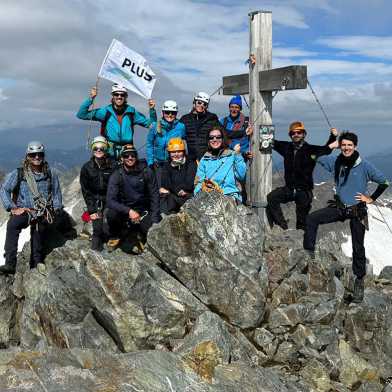
An yearly event on the PLUS agenda is the writing week in which PLUS members spend a week in the mountains to work on articles, proposals or presentations. For this year’s writing week we went accros the border to the Montafon region in Austria. Next to the writing work, we had enough time for team building and enjoying the beautiful landscape. The week is traditionally closed with a mountaineering trip to one of the alpine peaks in the surrounding.
Immersive serious games modify public participation in urban planning
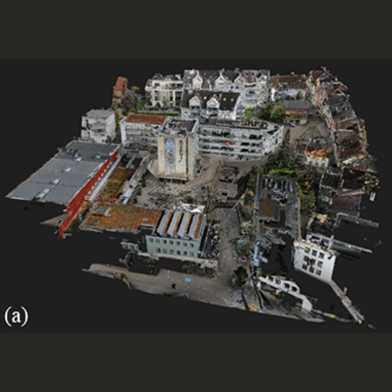
Our research explored the impact of immersive serious games on public participation in urban planning. Through a case study, we compared discussions during an analog board game to those during an immersive 3D computer game. Results showed that immersive visualizations sparked discussions on aesthetics and emotions, while diversifying argumentation patterns.
Two new doctoral students for two new EU projects

Franziska Walther is a doctoral researcher working on ecosystem services in mountain areas. Milan Loreti is originally from Luxembourg and has completed his BSc studies in Ecology at the University of Vienna and his MSc studies in Industrial Ecology at TU Delft & Leiden University.
How can we look at coexistence in landscapes from the perspective of people and wildlife?
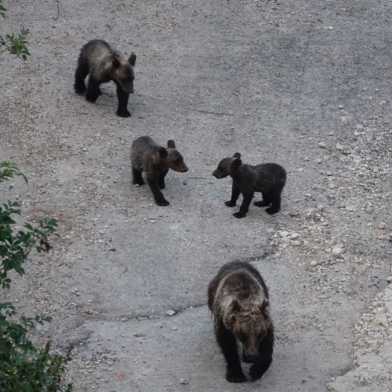
Coexistence with wildlife is becoming a key challenge in Europe as populations of large carnivores recover in human-dominated landscapes. We published a new article on modeling coexistence between humans and the endangered Apennine brown bears in Italy. The participatory modeling approach integrates both human-centered and bear-centered perspectives on the landscape and may help inform conservation decisions.
The importance of land use on different scales for birds in agricultural areas
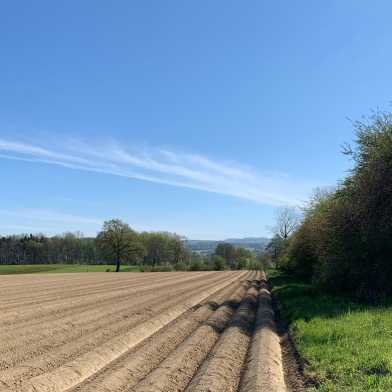
A new paper of Noëlle Klein et al. compares the importance of field-level land use compared to landscape-level land use and the influence of directly surrounding land use for birds in agricultural landscapes.
Where should wind turbines be constructed in Switzerland?
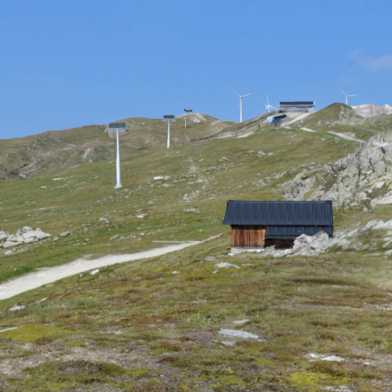
A study by researchers at ETH Zurich shows for the first time how a relaxation of Swiss spatial planning policy would affect the locations of wind turbines. If the aim is to have as few wind turbines as possible in the Alps and in Switzerland in general, it would be worth considering using windy agricultural areas on the western Swiss Plateau.
What drives deforestation in Switzerland?
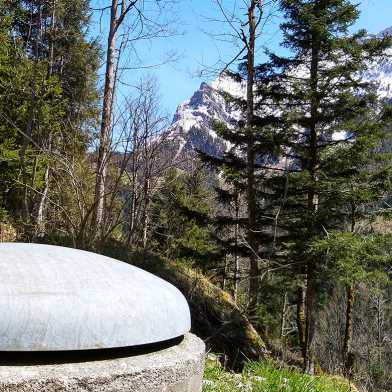
Deforestation is prohibited in Switzerland, as in most European countries. Nevertheless, exemptions from the ban on forest clearing may be granted, mostly for infrastructure purposes (e.g. related to transportation, energy, water construction/supply, quarry sites, etc.). However, surprisingly little is known about the drivers of deforestation outside of the tropics and developing countries, where agriculture may not be the main driver.
How much do farmers depend on cash crop income?
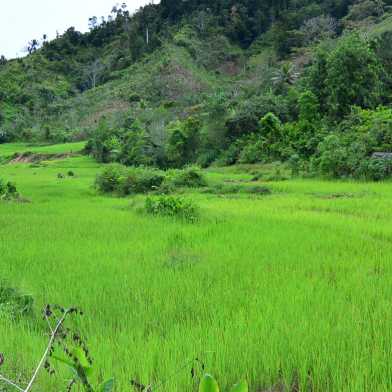
A new publication in the Journal of Land Use Science highlights the dependency of four villages in northeastern Madagascar on cash crop income.
Planning resilient and sustainable cities benefits from well-planned dialogue between science and design
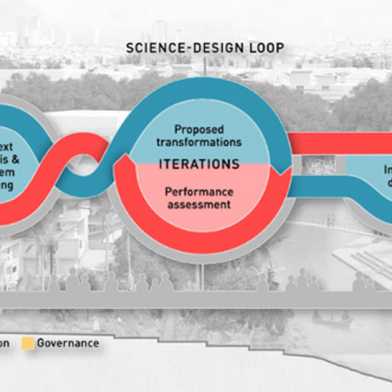
A new study proposes a roadmap to support improved dialogue between designers and scientists, and thus in the end, high quality designs. Authors built on case study in five countries (China, US, Switzerland, Indonesia and Singapore) to build their proposal.
Towards more inclusive urban parks
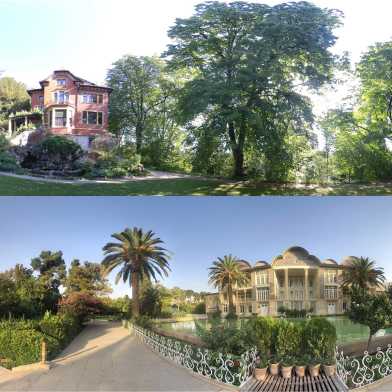
Urban parks are essential for people's recreation and well-being. In addition, they facilitate the establishment of a bonding to a place and feeling home. Several studies have shown how important urban parks are for mobile societies - in particular displaced persons - to link to the host place and overcome the disruptions of the move.
